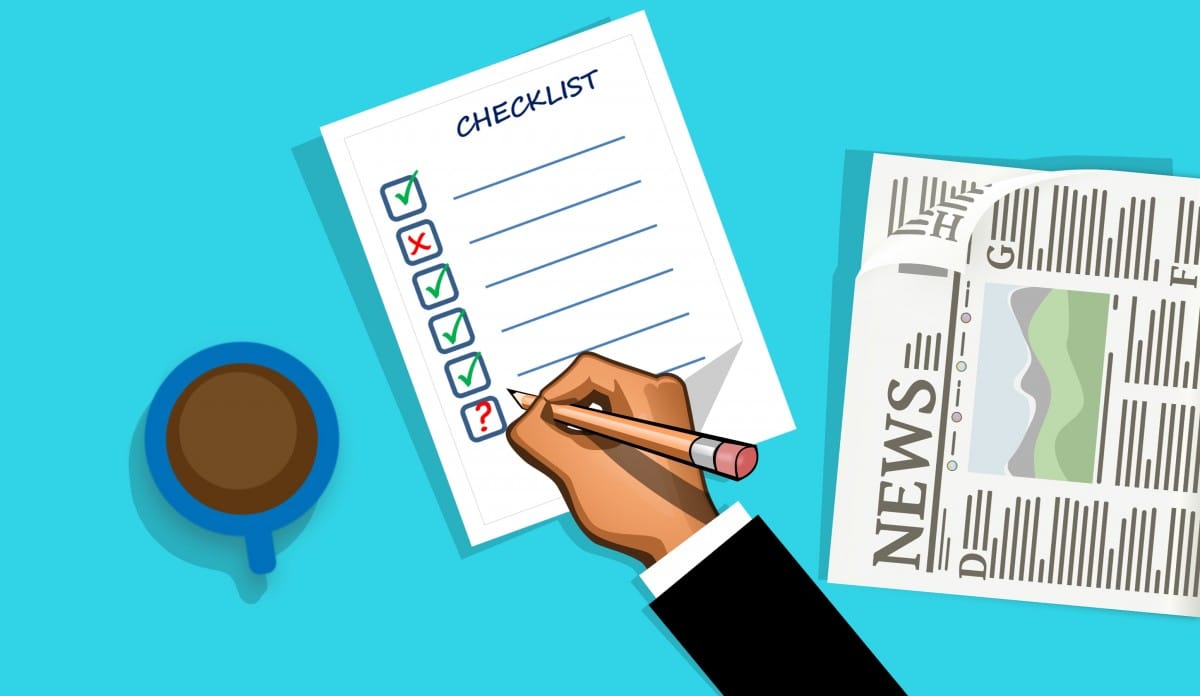- Office Etiquette
- Office Etiquette
- Dating A Coworker
- April Fools Pranks For Work
- How To Be A Good Employee
- Pet Peeves List
- How To Write A Project Proposal
- Qualities Of A Good Worker
- How To Get Along With Your Boss
- What Engaged Employees Do Differently
- What To Say Instead Of Sorry
- How To Send A Friendly Reminder Email
- How To End A Conversation
- Sorry For The Delay
- Tattoos In The Workplace
- Sorry For The Late Reply
- How To Respond To A Compliment
- New Employee
- How To Introduce Yourself Professionally
- Welcome New Employee Announcement
- Welcome Letter
- Thank You Note To Colleague
- 30/60/90 Plan
- Getting To Know You Questions
- Job Satisfaction
- Team Building Activities
- At Will Employment
- Company Culture
- Corporate Culture
- How To Succeed At Your New Remote Job
- How To Prepare For New Job Orientation
- How To Create An Employee Handbook
- Hostile Work Environment
- Hostile Work Environment
- How To Deal With A Difficult Coworker
- What Is Human Resource Development (HRD)?
- I Hate My Job
- Burnt Out At Work
- Condescending Coworker
- Sexual Harassment In The Workplace
- Work Environment
- My Job Sucks
- Favoritism At Work
- Respect In The Workplace
- Wagner Act
- Documentation In The Workplace
- Unconscious Bias
- Ageism
- What To Do When You Feel Unappreciated At Work
- How To Respond To A Warning At Work
- How To Deal With A Passive Aggressive Coworker
- What To Do When You're Unhappy At Work
- I Hate My Boss
- Gaslighting Boss
- Signs You're Underpaid
- Insubordination At Work
- Missing Work
- Communicating
- Send Retirement Wishes
- Write A Congratulations Email
- Professional Voicemail Greeting Examples
- Made A Mistake At Work
- Google Tricks
- Appeal Letter
- Employee Morale
- How To Write A Professional Email
- Out Of Office Message
- Small Group Icebreakers
- Memo Format
- Memo Examples
- Cell Phone At Work
- Meeting Minutes
- Communication Barriers
- How To Take Notes
- How To Brainstorm
- Ask For A Mental Health Day
- Transfer Request Letter And Email Examples
- How To Write A Business Proposal
- How To Deal With A Lazy Coworker
- How To Write A Rejection Letter
- How To Say No
- Scheduling
- Personal Goals
Find a Job You Really Want In
When you work at a company, you rarely accomplish much on your own. Whether someone teaches you a new skill, helps you meet a deadline, or simply does their part on a group project, your coworkers will come through for you throughout your career.
Taking the time to send a thank you note when this happens is a valuable habit to get into, as it builds relationships with your coworkers and is just a polite thing to do.
In this article, you’ll learn why it’s a good idea to send a thank you note to a colleague as well as tips for writing one. We’ve also included some examples of notes of appreciation to help you get ideas for your own.

Why Send a Thank You Note to a Colleague?
Sometimes it’s impossible to get all of your work done without your colleagues’ help, and it’s essential to recognize that. If someone helps you out, it’s good practice to thank them for their assistance. Even if you verbally thank your co-worker for their help, you should still follow up with a more formal appreciation letter.
Imagine if you helped a co-worker cross the finish line on a big project. Wouldn’t you like to receive a bit of recognition and a thank you for your work?
You don’t have to write a big, fancy, handwritten letter. You can keep it short and sweet as long as you express your gratitude for their help.
It doesn’t take much time to write an appreciative note, so it’s a good idea to get into the practice of sending them. Your colleagues will appreciate that you noticed their work, and they’ll look at you positively. It’s a good step in improving your workplace relationships and getting to know your colleagues. Plus, your teammates might be more willing to help you out in the future.
How to Write a Thank You Note to a Colleague
While there’s no single way to write an appreciation letter at work, there are a few tips you should follow to stay professional. Here are a few things to keep in mind as you work on your thank you letter.
-
Pick a suitable format. It’s up to you to decide how you want to thank a colleague, but remember you have a few options. Both email and a written letter can be great ways to thank someone, depending on the situation.
-
Call the recipient out. Make sure you identify who you’re writing to so that the recipient knows it’s a thank-you for their work. Whether you’re writing a letter or an email, remember to address the person you’re thanking instead of just sending a message with no heading.
-
Tell them what you’re thankful for. Sometimes you can get so caught up in writing an appreciation letter that you forget to mention what you’re thankful for. Just add a sentence or two about what you’re thanking your co-worker for to make your appreciation more clear.
-
Compliment their talents. It’s a good idea to mention how your colleague’s specific talents helped you complete your project. If they helped you edit a report, you could specifically note that their expert editing skills helped you wow your boss.
-
Mention any feedback. Sometimes the projects you collaborate with your teammates on get reviewed by supervisors or management. If you get any positive feedback from their review that involves your friend’s work, definitely mention it in your letter.
-
Look forward to the future. If you enjoyed working with your colleague, you could mention that you’re excited to work together again in the future. It will clarify that you appreciated their work and are willing to work with them again in the future.
-
Offer your help. Collaboration isn’t a one-way street, and you should offer your help to your co-worker in your appreciation letter. It’s a way to pay them back for their support, and it creates an opportunity to work with them again.
-
Make it personal. Don’t be afraid to include personal details or mention specifics about your relationship. Go ahead and say you’re happy you finally had the chance to work with this person if you’ve never worked with them before.
-
Use a handwritten signature. If you can, include your handwritten signature instead of just an email sign off or your name. It will make the letter more personal, which is precisely what you want for an appreciation note.
Sample Thank You Notes
Now that you know the basics, let’s take a look at some examples of appreciation letters. We’ve drafted templates for written letters and email notes so you can see both in use.
Remember that your note should include four sections. First, address your co-worker and put their name in the heading of your letter. Next, you should mention why you’re writing to them and what you’re thankful for. Then, elaborate on what they did that helped you or impressed you. Feel free to bring in specific and personal details here. Finally, you should say how their help impacted your team or the broader company and thank them again. You can sign off with your signature after this section.
Appreciation letter 1
Dear Sam,
Thank you for all of your help in completing the annual budget report. I would’ve never gotten it done without your support, and I’m so grateful for all that you did.
Your spreadsheet skills were impressive, and I appreciate you taking the time to help me figure out the data processing and your willingness to teach me along the way. The supervisor board was very pleased with the data analysis and particularly liked the pie chart that you made.
I really appreciate your help with this project, and I look forward to working with you again in the future. If you ever need a helping hand, I’m here whenever you need me.
With gratitude,
Jane (signature)
Appreciation letter 2
Dear Christie,
I would like to formally thank you for your help and support as we restructured our department over the past month. We couldn’t have done it without your expertise and valuable opinions.
I’ve never seen someone handle so many moving parts so easily and keep organized. You made the process extremely smooth, and I know it would’ve taken so much longer without your help. I especially appreciate your communication with the weekly updates and your collaboration with everyone in the department to make sure they understood the changes. Our department head, Deborah, even noted your ability to smooth this transition for us.
Thank you again for your hard work. If you ever need anything from me, please don’t hesitate to ask.
Kind regards,
Jim
Appreciation email 1
Hi all,
I’d like to thank you all for your work on our most recent marketing campaign. It truly took all of you to bring it to fruition, and I’m already impressed by the results that we’re seeing. Without all of your late nights, early mornings, and dedication, we would’ve never gotten this campaign off the ground.
I appreciate everyone’s work, and I have let our directors know how amazing everyone was on this project. I speak for myself and them when I say huge thanks to the whole team.
I’d also like to recognize Susan for her great creative thinking in solving the data tracking problem, as well as Bill for his beautiful content creation. Our campaign wouldn’t be successful without the effort they put in, and of course, the support you all gave them in bringing their ideas to life.
Thank you for your hard work, and I look forward to working with this team again soon.
Best,
Peter
Appreciation email 2
Dear James,
Thank you for all of your contributions to our new blog launch. Both my supervisor and I greatly appreciate your creative thinking and expert writing skills.
You had some wonderful ideas for content, and I really appreciate how you acted on them immediately with pitches and outlines. Your motivation is truly impressive.
If I can ever help you, please don’t hesitate to reach out. I’d be more than happy to lend a helping hand whenever you need it. Thank you again for your hard work.
Best regards,
Kim
When to Say Thank You to a Coworker
There are a few different situations when it would be a good idea to send out an appreciation letter or letters.
-
When you’re working on a project one-on-one with someone. If you work closely with someone on a project, you should consider sending a quick appreciation note to that person once you’re finished.
It doesn’t need to be long: You can simply thank them for their help or guidance and let them know that you enjoyed working with them.
-
When your team reaches a goal or finishes a project. If you’re working on a team, you can send out a group letter or email to thank everyone for their help in reaching your goal.
You can include specific call-outs here, like thanking your team leader for their guidance. You could also just note that you appreciate everyone going above and beyond to meet your deadline, or whatever you’re thanking them for.
-
When someone mentors or trains you. If someone takes the time to train you on new software or mentor you, you should send an appreciation letter, especially when you’re a new employee.
Writing a thank you note will show that you learned from them and appreciate their time and mentorship. It’ll also make them thankful that the company hired a thoughtful new employee.
-
When someone recommends you for a promotion. When someone writes you a letter of recommendation or otherwise assists you with getting a new job, promotion, or even a raise, it’s appropriate to write a thank you note.
It doesn’t need to be long, but taking the time to express your gratitude is a gracious thing to do and will strengthen that relationship.
-
When someone gives you a gift. This may seem like a no-brainer, but it’s easy to forget that you should write your coworkers a thank you note after they give you a gift or throw you a party.
-
When you or someone else is leaving their position. When you leave your coworkers for a new job, consider writing them thank you notes to express your appreciation for your time together. You can thank them for their friendship, their hard work, and how they impacted your career, and ask them to keep in touch.
Similarly, when someone else leaves the company or your department, you might want to write them a quick note thanking them for their work and letting them know that they will be missed.
How to Send Your Thank You Note
When you’re planning how to send your thank you note, there are a few factors you’ll need to think through.
-
Sending it as an email or handwritten note. When you send your appreciation letter, you can either send an email or leave a nice handwritten note for your recipient.
Emails are faster, so you should make sure you send an email to them within 24 to 48 hours of receiving their help if you choose this route. Since letters take a little more time to draft, you could deliver an appreciation letter to your coworker within a week of working with them.
When deciding between a letter and an email, think about the work your colleague did for you, your relationship with them, and how big of a gesture you want to make.
Emails can be a no-fuss way to quickly thank a colleague for their assistance, while a handwritten thank you note is a little more personal and shows extra effort when you want to show your appreciation for someone’s indispensable support.
-
Writing it to an individual or group. Sometimes you need to thank a group of people, and it can be tricky to decide whether to send a group message or individual notes.
The answer to this often depends on how closely you work with them and they work with each other. If you’re thanking a group of coworkers who all work in the same office for the gift they gave you, you can write a card and have them pass it around.
If you’re thanking your core team for their work on a project, a group email where you recognize each individual might be the perfect way to say thank you.
When there are a few people who stood out to you or went above and beyond on a project, writing individual notes is a great idea. This way you can share how much their work meant to you in a more personal and impactful way.
FAQs
-
How do you express gratitude to colleagues?
You express gratitude to colleagues by writing a thank you note. You can do this via email or handwritten note and send it to a group of people or an individual. Whatever method you choose though, taking the time to formally say thank you for specific things you appreciate is a good habit to get into.
-
How do you write a thank you letter to a colleague?
You write a thank you letter to a colleague by sending an email or handwritten note that specifies what you appreciate about them or their work. Your thank you letter doesn’t need to be very long or flowery, but it does need to be specific.
Name exactly what you’re thanking the person for, and if you can, share the positive results of their actions with them.
Close with a note about how you hope to work together again and that you’d love to return the favor at some point, and sign your name. Then you can send the email or deliver the note, and your work is done.
-
How do you say thank you professionally?
You say thank you professionally by writing a thank you note or email. In that note or email, you can include phrases such as, “Thank you for your meticulous work,” “I truly enjoyed working with you,” and “I deeply appreciate you taking the time to help me learn our new software.”
Being specific and personal while still professional is key to saying thank you to a colleague. You should also make sure you send your note within a week of the project ending to make sure the recipient knows you appreciate them.
- Office Etiquette
- Office Etiquette
- Dating A Coworker
- April Fools Pranks For Work
- How To Be A Good Employee
- Pet Peeves List
- How To Write A Project Proposal
- Qualities Of A Good Worker
- How To Get Along With Your Boss
- What Engaged Employees Do Differently
- What To Say Instead Of Sorry
- How To Send A Friendly Reminder Email
- How To End A Conversation
- Sorry For The Delay
- Tattoos In The Workplace
- Sorry For The Late Reply
- How To Respond To A Compliment
- New Employee
- How To Introduce Yourself Professionally
- Welcome New Employee Announcement
- Welcome Letter
- Thank You Note To Colleague
- 30/60/90 Plan
- Getting To Know You Questions
- Job Satisfaction
- Team Building Activities
- At Will Employment
- Company Culture
- Corporate Culture
- How To Succeed At Your New Remote Job
- How To Prepare For New Job Orientation
- How To Create An Employee Handbook
- Hostile Work Environment
- Hostile Work Environment
- How To Deal With A Difficult Coworker
- What Is Human Resource Development (HRD)?
- I Hate My Job
- Burnt Out At Work
- Condescending Coworker
- Sexual Harassment In The Workplace
- Work Environment
- My Job Sucks
- Favoritism At Work
- Respect In The Workplace
- Wagner Act
- Documentation In The Workplace
- Unconscious Bias
- Ageism
- What To Do When You Feel Unappreciated At Work
- How To Respond To A Warning At Work
- How To Deal With A Passive Aggressive Coworker
- What To Do When You're Unhappy At Work
- I Hate My Boss
- Gaslighting Boss
- Signs You're Underpaid
- Insubordination At Work
- Missing Work
- Communicating
- Send Retirement Wishes
- Write A Congratulations Email
- Professional Voicemail Greeting Examples
- Made A Mistake At Work
- Google Tricks
- Appeal Letter
- Employee Morale
- How To Write A Professional Email
- Out Of Office Message
- Small Group Icebreakers
- Memo Format
- Memo Examples
- Cell Phone At Work
- Meeting Minutes
- Communication Barriers
- How To Take Notes
- How To Brainstorm
- Ask For A Mental Health Day
- Transfer Request Letter And Email Examples
- How To Write A Business Proposal
- How To Deal With A Lazy Coworker
- How To Write A Rejection Letter
- How To Say No
- Scheduling
- Personal Goals





